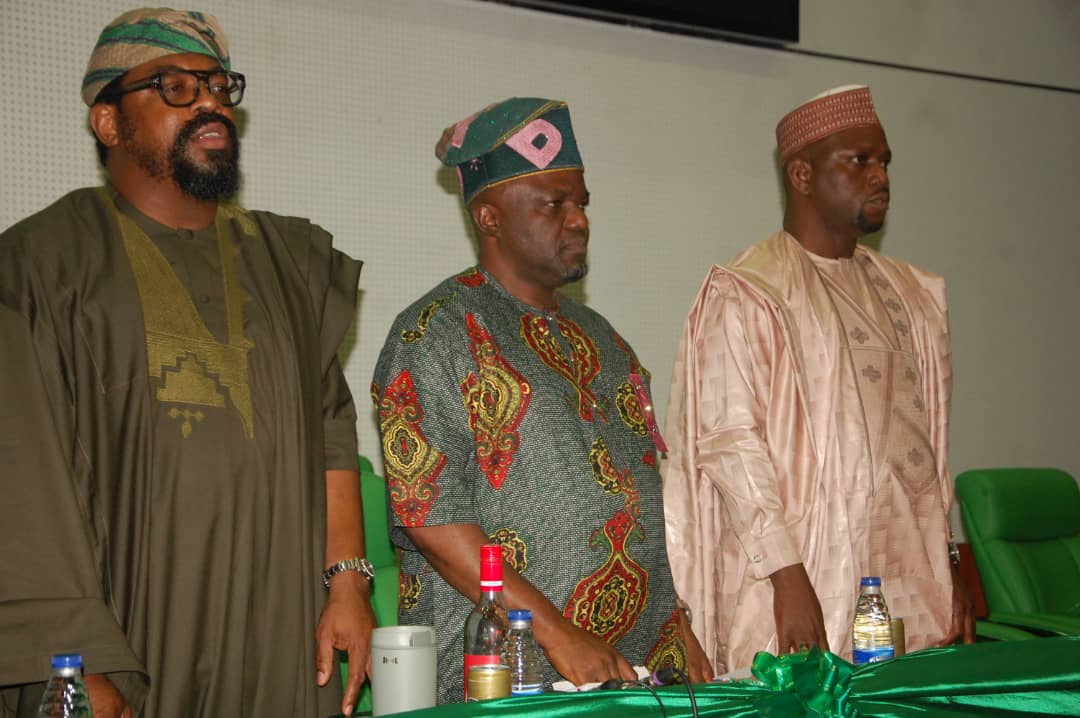Education Minister has urged the National Assembly to prioritise funding for existing institutions than create new ones

The Minister of Education, Dr. Olatunji Alausa, has called on the National Assembly to focus on adequately funding already established tertiary institutions rather than creating new ones.
Alausa made the appeal in a memorandum presented at a public hearing organised by the House of Representatives Committee on Federal Polytechnics and Higher Technical Education on Thursday.
The hearing featured deliberations on three key legislative proposals:
- A Bill for an Act to Establish the Federal College of Entrepreneurship and Skills Acquisition, Hawul LGA, Borno State (HB.1797) – aimed at offering full-time courses and training in technology, applied sciences, arts, social sciences, humanities, and management.
- A Bill to Amend Section 3(2)(b), the Second Schedule, and Section 31 of the Federal Polytechnics Act, Cap F17, Laws of the Federation of Nigeria, 2004 (HB.1413).
- A Bill to Amend the Federal Polytechnics Act, Cap F17, to review the functions of polytechnics (HB.2114).
Speaking on the proposed Federal College in Borno, Dr. Alausa opposed the bill, citing the Federal Government’s policy of equitable distribution of federal institutions. He noted that no state should have more than one federal polytechnic, and that all states except Sokoto and the Federal Capital Territory already meet this criterion.
“With limited resources,” the minister stressed, “government efforts should be directed at strengthening existing institutions to deliver quality education rather than spreading resources thin by establishing new ones.”
He further highlighted ongoing efforts to expand access to higher education through private sector involvement.
“Furthermore,” Alausa said, “the Federal Ministry of Education has expanded avenues for establishing private tertiary institutions. States and individuals are encouraged to utilise these channels to support national educational development.”
Given current funding constraints, he recommended the suspension of deliberations on the proposed college in Hawul, Borno State, urging lawmakers to prioritise the development of existing institutions to improve educational outcomes for Nigerian students.
Parliament Reports observes that Alausa’s position aligns with the outcome of Stephen Oronsaye Report. The Oronsaye Report was widely regarded as a blueprint for making Nigeria’s public sector more efficient and less costly by eliminating waste, duplication, and unnecessary bureaucracy. However its implementation has been slow and incomplete due to political, administrative, and social challenges.
The Stephen Oronsaye Report is the outcome of a Presidential Committee on the Restructuring and Rationalisation of Federal Government Parastatals, Commissions, and Agencies, established in 2011 by then-President Goodluck Jonathan and chaired by Stephen Oronsaye, a former Head of the Civil Service of the Federation. The committee submitted its findings in April 2012 in an 800-page document.
Parliament Reports also observes with keen interest on how lawmakers daily turned in establishment bills on educational institutions across the country.
On the proposed amendments to the Federal Polytechnics Act, the Minister expressed general support, with the exception of a provision seeking to include representatives from the National Board for Technical Education (NBTE) and the Manufacturers Association of Nigeria (MAN) on polytechnic governing councils.
“While both organisations play significant roles,” he stated, “their core functions do not directly align with the responsibilities of a polytechnic’s governing council. NBTE serves as a regulatory body, while MAN advocates for the interests of manufacturers.”
However, the sponsor of the bill, Rep. Usman Balami (PDP–Borno), defended the proposed institution, citing insecurity and high unemployment in Borno as urgent reasons for its establishment.
“This institution will provide diverse training programmes tailored for today’s dynamic job market,” Rep. Balami said. “It will bridge the gap between theory and practice, producing graduates ready to meet workforce demands.”
He added that the college would stimulate economic growth in the region by promoting entrepreneurship, fostering innovation, and nurturing local talent.
In his remarks, the Committee Chairman, Rep. Fuad Laguda (APC–Lagos), acknowledged broad agreement on the role of skills acquisition in addressing unemployment.
He encouraged stakeholders to offer substantive input, assuring that all submissions would be carefully considered in the committee’s report.
“With the passage of these bills, Nigerians will have greater access to knowledge and skills in the arts, sciences, technology, humanities, and vocational and technical education,” Rep. Laguda said.
He also lauded the Speaker and House leadership for their support and confidence in the committee’s capacity to deliver meaningful legislative results.

